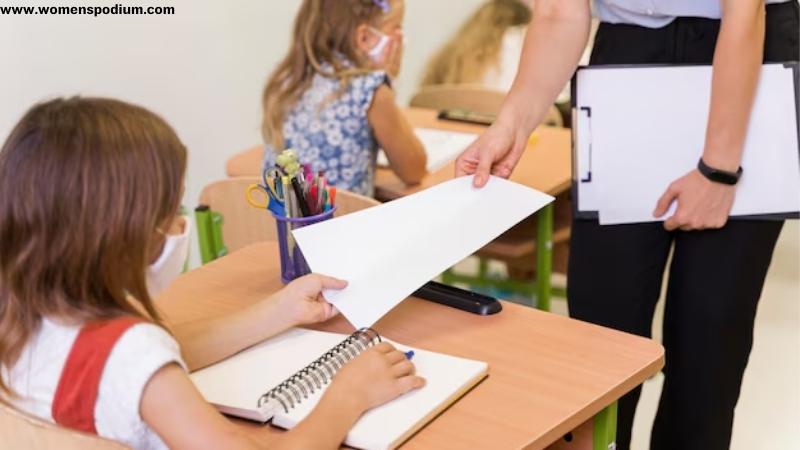
Education is one of parents’ most significant investments in their children’s future. Naturally, deciding between public and private schooling can be a daunting decision, with each path offering distinct benefits and challenges. For those contemplating whether enrolling a child in a private school is worth it, several factors need to be considered, including cost, educational quality, extracurricular opportunities, and long-term benefits.
Should I Send My Child to Private School: Cost Considerations

For many parents, understanding the financial commitment of private schooling is crucial, as tuition fees can vary widely based on location, school reputation, and available resources.
1. Worth Considering
One of the most obvious differences between private and public schooling is the cost. Private school tuition can range from a few thousand dollars to upwards of $30,000 per year depending on the school’s prestige and location. This is a significant financial commitment, which can become even more challenging if a family is considering private education for multiple children. However, many private schools offer scholarships and financial aid to ease the burden.
2. Long-Term Investment
For some parents, viewing private school tuition as an investment in their child’s future can make the financial outlay feel more manageable. The schools’ resources, smaller class sizes, and individualized attention potentially lead to higher standardized test scores and college admittance rates, offering a compelling case for those able to afford it.
Top 3 Advantages of Private Education

Private education offers numerous benefits that can sway parents towards investing its high costs. These advantages extend beyond academics, encompassing a holistic approach to education that can significantly enhance a child’s school experience.
1. Educational Quality
Private schools often provide a more rigorous academic curriculum compared to public schools, with a focus on fostering critical thinking and independent learning skills.
- Curriculum and Teaching Standards
Private schools often boast rigorous academic programs and have the flexibility to implement specialized curriculums unbound by many of the mandates affecting public schools. This allows for a focus on specific areas like arts, science, or humanities, and often includes advanced courses and a broader range of extracurricular activities.
- Experienced Faculty
Teacher qualifications in private schools tend to be higher, with many teachers holding advanced degrees in their subject areas. This can be a major draw for parents whose children might benefit from a more personalized approach to learning.
2. Extracurricular Opportunities
Extracurricular opportunities in private education often include a diverse array of clubs, sports, and arts programs that encourage students to explore their interests beyond the classroom setting.
- Broader Programs
Private schools often provide a more extensive selection of extracurricular activities, from arts and music to technology and athletics. These programs can play an essential role in a child’s development, providing opportunities to explore interests, develop new skills like learn new languages, and form lasting friendships.
- Smaller Communities
The smaller community size in private schools can lead to a greater sense of belonging for students. This environment is conducive not only to pursuing individual interests but also to personal growth, as students often receive more guidance and mentorship from faculty.
3. Long-term Benefits
Private education offers numerous long-term benefits that can profoundly impact a student’s future.
- College Admissions
Statistically, private school graduates are often more likely to attend prestigious universities. Admissions officers may recognize the rigor and reputation of certain private schools, which can work in applicants’ favor. However, it’s crucial to note that the level of prestige can vary significantly between schools.
- Networking Opportunities
Private schools can offer exclusive networking opportunities. The relationships formed during this time can extend into adulthood, leading to valuable personal and professional connections.
What is the Admission Process for Privation School?

The admission process for private schools can vary depending on the institution, but there are some general steps that most schools follow.
1. Research and Visit Schools
The first step in the admission process is to research different private schools in your area and determine which ones align with your child’s needs and interests. You can also consider visiting these schools to get a feel for their environment and see if it would be a good fit for your child.
2. Submit an Application
Once you have selected a few potential schools, you will need to submit an application. This may include filling out forms, providing academic records or transcripts, letters of recommendation, essays, and other supplemental materials. Use a cover letter template for private school to help you craft your application.
3. Take an Entrance Exam
Some private schools may require students to take an entrance exam as part of the admission process. These exams can vary, but they typically test a student’s academic abilities and potential for success at the school.
4. Attend an Interview
A personal interview is often a part of the admission process for private schools. This allows admissions officers to get to know the student and their family on a more personal level and see if they would be a good fit for the school community.
5. Receive Acceptance or Rejection
After completing all necessary steps, you will receive either an acceptance or rejection letter from each school you applied to. Keep in mind that private schools have limited spots and may receive a high number of applicants, so not all students will be accepted.
Can I Send My Child to Private School for Free?
Some private schools do offer scholarships and financial aid to qualified applicants, making it possible for students to attend without paying full tuition. It’s important to research and inquire about each school’s specific policies and opportunities for financial assistance.
The Cost of Private Schooling Worldwide
Here is a list of the average annual cost of private schooling in ten different countries:
- United States: Approximately $13,000
- United Kingdom: Around £15,000 (approximately $18,800)
- Australia: About AUD 20,000 (approximately $13,000)
- Canada: Roughly CAD 12,000 (approximately $9,100)
- Germany: Around €12,000 (approximately $14,300)
- France: Approximately €7,000 (approximately $8,300)
- Singapore: About SGD 30,000 (approximately $22,100)
- India: Roughly ₹250,000 (approximately $3,000)
- China: Around ¥90,000 (approximately $13,800)
- Brazil: About R$25,000 (approximately $4,500)
These figures provide a general overview, though costs can vary significantly based on the school’s location, reputation, and facilities.
Making the Decision
Choosing whether to invest in a private school education ultimately depends on individual values, financial circumstances, and the specific needs and aspirations of the child. Parents should consider visiting schools, talking to current students and alumni, and weighing the pros and cons in the context of their own family circumstances.
While private schools offer unique and valuable advantages, the choice doesn’t have to be definitive. There are outstanding public schools with excellent records of student success and fulfillment.
Whether private school is worth it depends, in large part, on how a family defines educational success and what they value most in their child’s education. For some, the tailored learning environment and resources of a private school are unparalleled; for others, the question lies not in the type of school but in finding the right environment for their child to thrive.
Also Read: Parents can have better control over their kid’s education and have more effective parenting this way.





